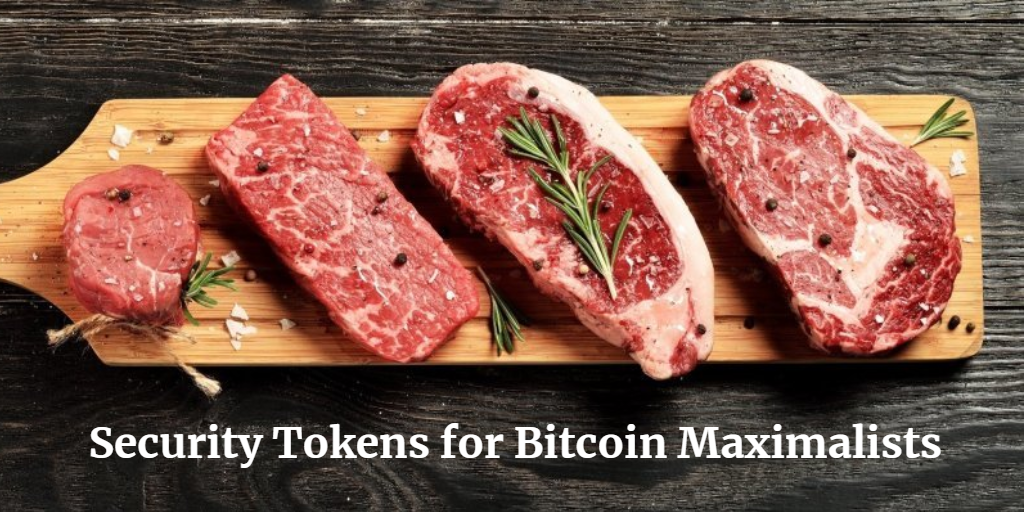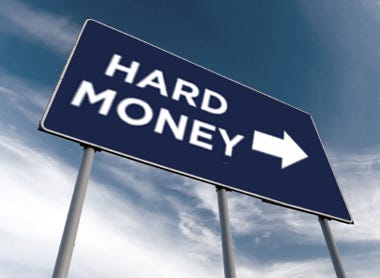I�ve considered myself a bitcoin maximalist ever since Vitalik Buterin coined the term in 2014. For quite some time I championed the Bitcoin-only position, but over the last year I�ve spent a fair amount of energy defending myself to...
I�ve considered myself a bitcoin maximalist ever since Vitalik Buterin coined the term in 2014. For quite some time I championed the Bitcoin-only position, but over the last year I�ve spent a fair amount of energy defending myself to other bitcoin maximalists over my involvement with Oleum Capital and its upcoming security token offering (�STO�). Oleum is using tokenized financing to bring funding to junior oil and gas producers in my home province of Alberta,�Canada.
This article lays out why I believe that properly structured token offerings, which give real rights to token holders, line up perfectly with the ideals of bitcoin maximalism.
 Let�s get to the meat of the�issue.
Let�s get to the meat of the�issue.What Bitcoin Maximalism means to�me
I believe that bitcoin is the most significant invention of the 21st�century.
It is the single most important and noteworthy implementation of blockchain technology to�date.
Bitcoin is the best form of money the world has had to date. Given that money is winner-take-all, we only need one version of global hard-money. Whichever project wins the race to be the world�s hard money, will be the most significant way blockchain will ever be implemented. Because the properties that make it valuable and unique are hard to reproduce, it�s very unlikely that a unit of account other than bitcoin will�win.

If the world were perfectly rational, bitcoin would already have won. In the absence of a perfectly rational and efficient world, people invest in currency-altcoins if they believe the narrative has a chance to succeed over�bitcoin.
Many token buyers have a hard time separating tokens intended as a currency from token designed to operate on a single platform(utility tokens). They choose to evaluate the merits of these tokens like they would a stock on traditional markets. If they like the elevator pitch and the team makes some impressive sounding news releases, then it must be a good investment. What these investors miss is that utility tokens give the buyers no rights against ownership in the company or claims against future profits. All you are getting is the right to use the platform(which may or may not ever exist) at a later date. Most of these platforms don�t benefit from having their own unit of account as most of the participants will always think in other units of account(dollars or bitcoin).
The majority of utility token altcoins add an unnecessary layer of friction to the platforms they were created for. The real reason these tokens are created is obviously to raise funds for the project or it�s creators. Unless the tokens are backed by some kind of obligations or in some way tied to the success or usefulness of the platform, they have no value and nothing to support their price beyond speculation. This cannot be overstated:
YOU MUST OFFER REAL OBLIGATIONS TO BACK YOUR�TOKEN.
Simply issuing a utility token and calling it a security won�t improve its value as an investment.
Security tokens are the next stage in the inevitable financial evolution spurred by the invention of bitcoin. Many bitcoin maximalists are quick to point out that since real world business and assets cannot be trustless, tokenizing companies and their assets does not offer any meaningful innovation.
Saifedean Ammous on Twitter
@brucefenton A security is not a currency, it is denominated in a currency. There will of course be securities, but none of these alts are securities, and a blockchain in inherently useless for a real world security, since it cannot possibly enforce ownership of real world assets.
The main benefit of tokenizing securities rather than listing on traditional markets is the option to disintermediate the mandatory middlemen present in the existing financial system.
When we issue a security as a blockchain token, we are still asking buyers to trust our company(just like any other security offering). We are still asking them to trust the exchanges and custodians that we�ve set up. However, all of these relationships are now optional from the perspective of an issuer. If the terms, fees or requirements of a particular broker, dealer or exchange don�t make sense for a business, they are free to go elsewhere.
Additionally, issuers and tokens buyers are now exposed to a global level of liquidity that doesn�t exist in any single segregated market. The fact that we have a global, trustless method of payment means that buyers have access to a pool of potential investments from all over the�world.
From a purely technological standpoint, all of this would be much more efficient if all of the worlds securities were issued and traded on a single centrally controlled database that everyone had access to. Since it�s extremely unlikely that the many disparate stakeholders in the current system will ever agree on something like that, we need to be pragmatic and focus on what we can actually improve. What we lose efficiency is more than made up for by the fact that blockchain tokens will be more broadly interoperable than traditional markets.
One of the biggest benefits of �blockchain technology� and all the hype surrounding it may be as a catalyst to get established businesses to change their tech stacks to a more common, interoperable standard. Even if companies end up implementing blockchains that are less efficient than a properly deployed modern database, if it�s better than what they are using now then it�s a net positive.
Ultimately, I believe that allowing individuals and companies more freedom and flexibility in financial markets aligns well with the ideals of bitcoin maximalism. The next logical steps in this evolution will be tokens on bitcoin/lightning followed by real world investments denominated in�bitcoin.
Security Tokens for Bitcoin Maximalists was originally published in Bitcoin Brains Blog on Medium, where people are continuing the conversation by highlighting and responding to this story.








